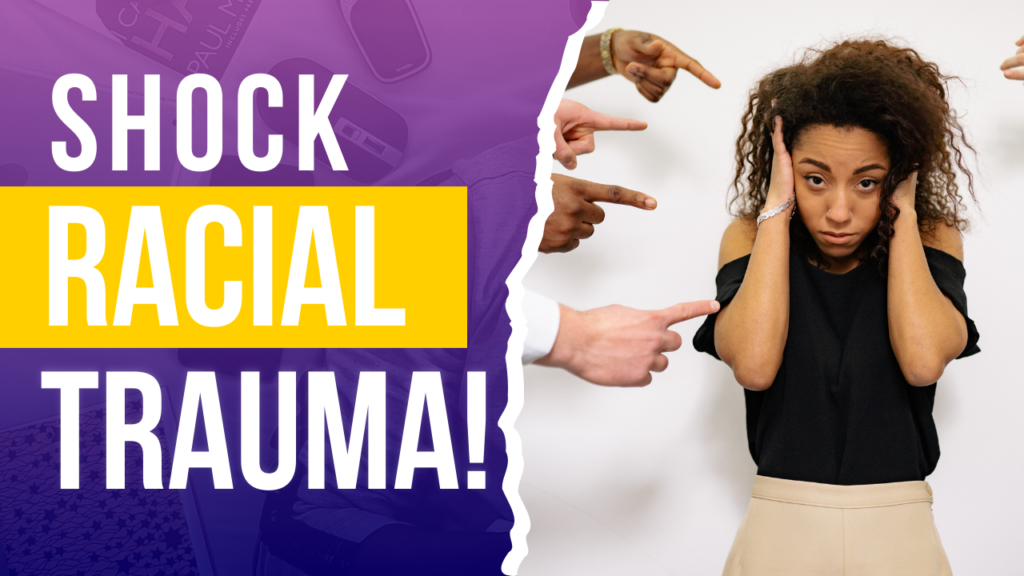
Powered By BlackTraumaGPT.com
Researched and Curated By Rev. Dr. Philippe SHOCK Matthews
(Black Trauma and Mental Health Specialist | Prompt Eng | GPT Dev | Research Scientist | Africana Phenomenologist | Black AI Corsortim co-Founder)
Medase Family,
In the vast landscape of Black human suffering, trauma stands as a stark monument to the mind’s struggle with pain and adversity. But within the spectrum of traumatic experiences, there lies a particularly insidious form known as decontextualized trauma. This type of trauma, stripped of its historical, cultural, and social context, often remains unrecognized and untreated, perpetuating cycles of distress across generations.
Understanding Decontextualized Trauma
Decontextualized trauma refers to the manifestation of psychological and physiological symptoms in individuals or communities without a clear, immediate cause. It arises when the original source of trauma has been obscured or forgotten, often buried deep within the fabric of everyday life. Unlike acute trauma, which can be traced to specific events such as accidents or natural disasters, decontextualized trauma is diffuse and pervasive, its roots entangled in the complex history of systemic oppression, violence, and discrimination.
For many, especially within marginalized communities, decontextualized trauma is a constant undercurrent, subtly influencing behaviors, emotions, and health. It is the silent echo of ancestral suffering, the residual impact of historical injustices, and the persistent presence of unacknowledged grief and loss.
Historical Roots and Systemic Oppression
To fully grasp decontextualized trauma, one must delve into the historical and systemic factors that give rise to it. For Black communities, the legacy of slavery, colonialism, segregation, and ongoing racial discrimination forms a backdrop against which decontextualized trauma plays out. These historical events are not mere relics of the past but are deeply embedded in the collective psyche, influencing present-day experiences in profound ways.
During slavery, for example, African people were subjected to unimaginable brutality and dehumanization. Families were torn apart, cultural identities were erased, and generations were born into a world of relentless exploitation and abuse. The trauma experienced during this period did not vanish with the abolition of slavery; it morphed and persisted, finding new expressions in the systemic racism and socio-economic inequalities that followed.
The Psychological and Physiological Impact
Decontextualized trauma manifests in various ways, often through symptoms that appear disconnected from any immediate cause. These symptoms can include chronic anxiety, depression, hypervigilance, emotional numbness, and a pervasive sense of hopelessness or despair. Physically, individuals may experience unexplained ailments such as chronic pain, fatigue, or gastrointestinal issues.
The impact of decontextualized trauma is particularly pronounced in the realm of mental health. The absence of a clear traumatic event makes it challenging for individuals to understand and articulate their distress, leading to feelings of confusion and isolation. Moreover, the stigma surrounding mental health in many communities can exacerbate the problem, as individuals may be reluctant to seek help or may not recognize the need for it.
Intergenerational Transmission
One of the most insidious aspects of decontextualized trauma is its ability to be transmitted across generations. This intergenerational transmission occurs through both biological and social mechanisms. Epigenetic research has shown that trauma can leave chemical marks on an individual’s DNA, affecting gene expression and potentially being passed down to offspring. Socially, trauma is transmitted through familial and cultural narratives, behaviors, and coping mechanisms.
The Invisible Chains: Case Studies
Consider the case of a young African American woman experiencing chronic anxiety and depression. She may struggle to find an immediate cause for her distress, yet her symptoms are real and debilitating. If we trace her lineage, we might find that her great-grandparents were slaves, her grandparents faced Jim Crow segregation, and her parents endured systemic discrimination. Each generation has accumulated stress and trauma, much of which remains unspoken and unprocessed, manifesting in her life as decontextualized trauma.
Similarly, a community facing high levels of violence, poverty, and substance abuse may appear to suffer from these issues in isolation. However, a deeper look might reveal a history of displacement, disenfranchisement, and systemic neglect. The community’s current struggles are decontextualized remnants of historical trauma, perpetuated through socio-economic and environmental stressors.

Healing Decontextualized Trauma
Addressing decontextualized trauma requires a holistic approach that acknowledges both its historical roots and its contemporary manifestations. Here are several key strategies:
1. Historical Awareness and Acknowledgment: Bringing the historical context of trauma to the forefront is crucial. Education about the history of oppression and systemic injustice can help individuals and communities understand the origins of their distress and begin the process of healing.
2. Cultural and Community-Based Interventions: Leveraging cultural practices and community resources can provide meaningful support. Rituals, storytelling, and communal activities can foster a sense of belonging and continuity, counteracting feelings of isolation and fragmentation.
3. Trauma-Informed Therapy: Therapists and counselors trained in trauma-informed care can help individuals identify and process the underlying causes of their symptoms. Approaches such as narrative therapy, EMDR (Eye Movement Desensitization and Reprocessing), and somatic experiencing can be particularly effective.
4. Social Justice and Advocacy: Addressing the systemic factors that perpetuate decontextualized trauma is essential. This includes advocating for policies that reduce socio-economic inequalities, improve access to mental health care, and promote social justice.
5. Intergenerational Healing: Facilitating dialogue across generations can help families and communities process and integrate their collective experiences. Creating safe spaces for storytelling and sharing can bridge the gaps created by decontextualized trauma.
Decontextualized trauma represents the hidden chains that bind individuals and communities to their past, profoundly influencing their present. By recognizing and addressing the historical and systemic roots of this trauma, we can begin to unravel these chains, paving the way for healing and empowerment. This journey requires a compassionate and comprehensive approach, integrating historical awareness, cultural wisdom, and social justice to transform the legacy of trauma into a foundation for resilience and growth.
Brought To You By…
- [IMMEDIATE DOWNLOAD] Know Your Rights eBook by the Law Office of Keith J. Staten https://bit.ly/4bD3MbK
- Enhancing Cognitive Performance: The Power of Neuromelanin Boosters https://t.ly/S-ePs
- FREE web series: Nothing is Wrong with Black People…Something Happened to Black People: https://bit.ly/3FJCsLo
- BlackTraumaGPT http://blacktraumagpt.com/
- MyGuardianDoc™ https://bit.ly/3TlgPaE – Your One-Stop for On-Demand Compassionate Medical Guidance, Urgent Care, Primary Care, and Virtual Second Opinions, all provided by licensed Medical Doctors.
Enjoying Our Content?
Become a member of our Patreon to get the latest research on Racial Black Trauma and learn the hidden science behind why 1st Frequency Black people are God’s/Amma’s greatest creation! https://www.patreon.com/revshock. Or buy Rev. SHOCK a Coffee! https://bit.ly/3yg5D7A


Book A Discovery Call
Are you ready to SHOCKtrauma? Click HERE now to book a discovery call with Rev. Dr. Philippe SHOCK Matthews

Get Social with Doc SHOCK:
PATREON: https://t.ly/mjksf | REV. DR. SHOCK (PERPLEXITY PAGE): https://t.ly/ppjwh | SOLO: https://solo.to/revshock | BIO: https://t.ly/Ko_y_ | BLOG: https://t.ly/j6bh0 | PODCAST: https://t.ly/cB5GD | ENDORSEMENT: https://t.ly/jFErO | THREADS: https://t.ly/SoKkT | IG: https://t.ly/XsN8f | FB: https://t.ly/R3r9Y | X: https://t.ly/iJ-wy | LINKEDIN: https://t.ly/GZ0pe | TIKTOK: https://t.ly/zfp60 | BLACK TRAUMA GPT: https://t.ly/vswbs | BLACK AI CONSORTIUM: https://t.ly/uiRZN | BOOKS BY PM: https://t.ly/vvHMd
